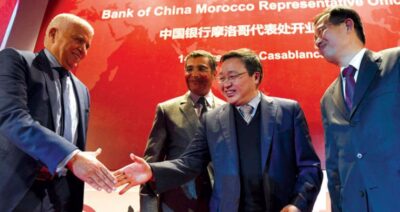The Casablanca Financial Centre in Morocco has maintained its top position on the African continent for eight consecutive years.
This achievement is attributed to the establishment of an appealing business environment supported by four main pillars: tax incentives, streamlined procedures for investors, partnerships with international financial hubs, and the enhancement of financial expertise. Abdelghani Lakhdar, the centre’s secretary general, emphasized in an interview with Bloomberg Asharq that these four aspects are crucial for the centre’s dominance.
Established 15 years ago in Morocco’s economic capital, the Casablanca Financial Centre is home to 215 companies operating across 115 countries, including 50 in Africa. About 40% of these firms serve as regional headquarters for multinational corporations. According to Al-Arab, international rankings place the Casablanca Financial Centre third among financial centres in the Middle East and Africa, following Dubai and Abu Dhabi.
A representative office opened in Dubai a few years back now significantly contributes to attracting businesses, accounting for up to 20% of the annual registration applications received by the centre. Lakhdar noted that despite challenging global conditions last year, the centre’s businesses grew, generating nearly $1.4 billion in revenues, with 60% derived from international firms, half of which are based in Africa. Furthermore, the centre has facilitated the creation of around 7,000 direct jobs within the local economy.
It entered the Global Financial Centres Index (GFCI) in 2014 and achieved the top rank in Africa two years later. The secretary-general highlighted several advantages for the centre, particularly tax incentives that balance attractiveness with adherence to international standards, combined with Morocco’s strategic location and openness to the African market. Businesses operating there benefit from a corporate tax exemption for the initial five years, transitioning to a gradually increasing rate that will reach 20% by 2026, starting at 17.5%.
The centre hosts international firms across various sectors, including commercial and investment banks, insurance companies, investment funds, asset managers, consulting firms, and law practices. The 100-hectare area designated for the financial centre includes multinational companies managing their continental operations from Morocco’s economic capital, with 35,000 square metres of office space distributed across three buildings constructed by the centre. Lakhdar noted that significant projects are underway by independent developers to double the available office space.
Recent entrants to the centre include companies such as Saudi Industrial Export Company (Sadarat), Korea’s Hankook Tire, US-based GE Aerospace—a key manufacturer of engines for commercial and military aircraft—and Germany’s Commerzbank. Previous major additions include American International Group (AIG), Bank of China, BNP Paribas, Deloitte, McKinsey, BCG, MasterCard, and Huawei, all with a keen interest in the African market.
Lakhdar reaffirmed ongoing efforts to attract value-driven firms, particularly in financial services and investment funds. He mentioned that this endeavour requires time to showcase the centre’s benefits and persuade investors, especially given the competition from other centres both within and beyond Africa. This focus on attracting such companies aligns with the Mohammed VI Investment Fund’s efforts, which aims to select entities this year to manage investment funds for startups, promoting the venture capital sector in Morocco.
These entities are projected to raise approximately $2 billion over the next five years, according to earlier reports. In summary, the Casablanca Financial Centre has not only solidified its leadership in Africa but continues to draw significant international players, enhancing the local economy and positioning Morocco as a key player in the global financial landscape.
